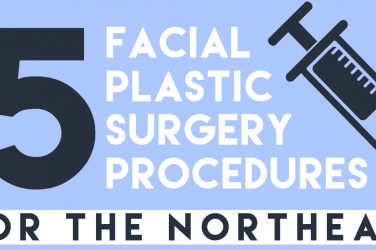The role of Nurse Practitioners (NPs) in the healthcare ecosystem has witnessed a dynamic shift over the past decade, marked by an expansion in their scope of practice and clinical responsibilities. Traditionally, NPs served as primary care providers, managing chronic illnesses and providing preventive care under the supervision of physicians. However, today’s NPs are taking on more complex roles, including diagnosing acute conditions, interpreting diagnostic tests, and managing overall patient care. This shift not only highlights the growing trust in NPs’ capabilities but also addresses the acute shortage of healthcare providers in underserved areas.
Increasingly, states are granting full practice authority to NPs, allowing them to operate independently of physicians. This autonomy enables them to initiate treatment plans, prescribe medications, and even lead healthcare teams, significantly impacting healthcare delivery and accessibility. The move towards full practice autonomy reflects a broader recognition of the NPs’ extensive training and their ability to provide high-quality care, particularly in rural and inner-city clinics where physicians are scarce.
As NPs continue to fill critical gaps in healthcare, their roles in specialized areas such as cardiology, emergency medicine, and oncology are becoming more prevalent. These roles require advanced knowledge and the ability to make quick, critical decisions, traits that are developed through rigorous education and extensive clinical experience. The expansion of these roles not only enhances the quality of healthcare services but also elevates the profession, attracting more individuals to the field.
Education and Continuous Learning
The educational pathway for Nurse Practitioners is robust, designed to prepare them for the complexities of modern healthcare. An NP’s education typically includes a Master’s degree in nursing, followed by specific training and certification in specialized fields. This educational foundation is crucial as NPs are expected to manage patient care with a degree of independence that rivals that of physicians in similar domains.
Continuing education is a cornerstone of an NP’s career, ensuring they stay abreast of the latest medical advancements and technologies. Regular participation in workshops, seminars, and professional courses is essential for maintaining certification and enhancing their clinical skills. This ongoing learning process is critical in a field as dynamic as healthcare, where new treatment methods and research findings continuously reshape patient care practices.
For those Nurse Practitioners looking to further advance their careers, transitioning into more specialized or higher roles often necessitates additional qualifications or even a shift into different areas of medicine. Such transitions are supported by educational institutions that offer bridge programs designed to recognize the prior experience of healthcare professionals, thereby accelerating their academic and professional advancement.
Collaborative Practice and Team Leadership
The collaborative nature of modern healthcare often places Nurse Practitioners at the helm of multidisciplinary teams, coordinating with physicians, specialists, and other healthcare providers to deliver comprehensive care. NPs are well-positioned for these roles due to their extensive training in patient management and their holistic approach to healthcare, which emphasizes patient-centered outcomes.
Leadership roles for NPs within healthcare teams often involve significant administrative duties, including overseeing clinical operations, budgeting, and policy development. These responsibilities highlight the evolution of the NP role from a supportive to a pivotal managerial position within healthcare institutions.
Collaborative practice extends beyond day-to-day patient care; it also involves strategic planning and implementation of practice-wide policies. NPs, with their on-the-ground insights, are instrumental in shaping these policies, ensuring they meet the practical needs of patient care while also fostering an environment of safety and efficiency.
Transitioning to Higher Degrees and Roles
For Nurse Practitioners aspiring to further elevate their clinical and administrative capabilities, transitioning to roles that require a medical doctorate is becoming increasingly common. This move is often motivated by a desire to take on more specialized medical roles or higher administrative positions that influence healthcare at a systemic level. The journey to an MD, while rigorous, opens new avenues for professional growth and leadership in healthcare.
The desire to engage in more specialized practices or take on significant administrative roles also drives many nurse practitioners to seek advanced degrees. The healthcare landscape is continually evolving, with new technologies and treatments that demand a deeper understanding and a broader skill set. By pursuing a medical doctorate, NPs can access opportunities that were once beyond their scope, such as conducting pioneering research or leading innovative healthcare programs. Moreover, the transition to an MD can provide a platform to influence health policy and contribute to the shaping of healthcare systems on a national or even global scale.
Moreover, the process of transitioning is meticulously designed to integrate the unique skills and experiences that NPs bring to the table. Educational programs tailored for NPs transitioning to MDs focus on bridging gaps in knowledge while amplifying the skills that have been honed during their time as practicing NPs. This approach not only facilitates a smoother transition but also ensures that these professionals are not starting from scratch. They enter medical school with a valuable perspective that enriches their understanding of patient care from a practical standpoint, making them uniquely positioned to excel in their new roles.
Integration of Technology in Practice
In an era where technology is at the forefront of healthcare improvements, Nurse Practitioners are increasingly relying on digital tools to enhance patient care. Electronic health records (EHRs) have become fundamental in managing patient data, allowing NPs to track health history efficiently and make informed decisions. Moreover, telehealth has emerged as a critical component in extending care, especially in remote or underserved regions where NPs often serve as the primary, and sometimes only, healthcare providers.
Technological advancements such as AI and machine learning are also beginning to play a role in diagnostic processes, with NPs leveraging these tools to provide more accurate and timely diagnosis. The integration of such technology not only streamlines workflow but also improves the accuracy and effectiveness of treatments prescribed by NPs, enhancing overall patient outcomes.
Furthermore, mobile health applications and wearable technology are tools that NPs are using more frequently to monitor patient health metrics in real-time. These technologies support NPs in offering personalized care plans and proactive health management strategies, marking a significant shift from reactive to preventive care models.
Future Perspectives in NP Practice
The trajectory of Nurse Practitioner roles continues to evolve, shaped by healthcare demands, legislative changes, and technological advancements. As the healthcare landscape becomes more complex, the need for highly skilled and versatile NPs is more pronounced than ever. The future of NP practice is likely to involve more specialized roles, greater autonomy, and enhanced leadership positions in healthcare settings.
Predictions for the future also suggest a significant shift towards preventive care, with NPs leading initiatives that focus on health promotion and disease prevention. This shift not only aligns with broader public health goals but also reduces the long-term costs associated with managing chronic diseases and acute health episodes.
As NPs continue to adapt to and embrace these changes, their role will remain integral to the primary care framework, particularly in underserved areas where their presence can make a profound difference. The ongoing evolution of the NP role is not just a reflection of the changing dynamics of healthcare but a testament to the critical role NPs play in shaping its future.







